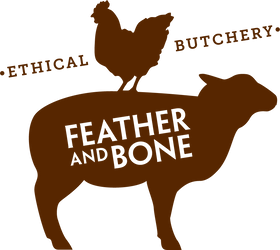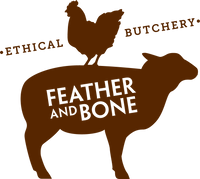Farm visit to Ngiyaani Lowline Beef

Ngiyaani 2 and 3 year old Lowline steers in their new strip grazing section.
Grant (aka Mr Bone) recently returned from a bolt around NSW visiting farms. Some are old relationships, like the Franckins at Comboyne, from whom we've sourced eggs and veal since 2009, some are new, like Ngiyaani, and some are prospective, farms we hope to source from in future.
We visit all the farms we work with to verify farmer stories, learn about the individual farmer's practice and understand the unique characteristics of each farm.
In some cases, such as Gundooee Organic Wagyu and Moorlands Biodynamic Farm, we've been visiting the farms regularly for 15 years so we've been privileged to see the evolution of the farmer and the landscape. If you're interested, both of these farms are profiled in our book, The Ethical Omnivore.
Representing the farms accurately and being able to vouch for the claims we make about the products we sell is the heart of what we do.
Because our business is really about connections at every level. Offering you as much information as possible is the best way we know to connect you to the farms that grow your food.
Here's Grant's report from Ngiyaani Farm.
Ngiyaani Farm Visit, late September 2024
Their own description of the property from a 'Grass Roots' magazine article is a good way in.
'In July 2007 we (Pete Long and Sarah Ferguson) completed our purchase of 629 acres of what the local scientific community considered was the most degraded piece of farmland in the Namoi Valley.
Located just west of Gunnedah, NSW, its only infrastructure was a very low yielding 1946 windmill that was 20m deep, plus fencing from the same era.
As it had been subdivided from an existing farm and was nameless, we decided to call it ‘Ngiyaani’, which means ‘we all’ in the Gamilaraay language of the traditional owners. That name was our invitation to family, friends and community to come join us on our journey in rehabilitating this scarred but sacred land.'
From the outset the farm has been designed as a low-impact off-grid regenerative enterprise.
They started with Santa Gertrudis cattle, a large framed hybrid cattle breed developed in Texas suited to heat and semi-arid conditions, but the unwelcome circuit-breaker of the 6 year dry from 2013-2019 saw them destock completely and when it came to restocking in 2020 they switched to the placid and diminutive Lowline Angus breed, closely related to original Aberdeen/Angus genetics that display excellent feed efficiency, prolonged fertility and are perfectly suited to the adaptive rotational grazing system employed on the farm.
It is a system is designed to foster bio-mass and diversity, ensuring the health of the animals that graze upon it Coupled with access to high quality drinking water (with the addition of small quantities of apple cider vinegar in the troughs to discourage parasites), provides everything these undemanding cattle require, while respecting the fact that the farm is a habitat for all sorts of plants, insects and animals, whose burgeoning populations reflect a vibrancy that had long been absent from this place.
Inputs are limited to the compost teas produced on farm from the Johnson-Su method of compost production, and a biochar-based supplement, laced with minerals and held together with a lick of molasses that is made available to the cattle on a regular basis.
The paddocks have been divided into ever-smaller areas with the use of solar powered hot wire fencing, easily managed by one person. Briefer, more intensive grazing periods, has seen the re-emergence of many native grasses and perennials from the dormant seed bank still present in the soil, but ill-suited to the management practices of the past.
The enormous progress made in just 17 years in converting a degraded farm into one that maintains ground cover year round with ever-increasing productivity belies the fact that both Pete and Sarah have demanding, full-time off-farm employment.
But Ngiyaani is no hobby farm; rather it’s a meticulously managed enterprise with a clearly articulated vision of what they want to achieve. The quality of the carcasses produced from their 3 year old steers are testament to the increasingly successful realisation of that vison.
Read our previous post about Ngiyaani.


Peter having a morning chat with the steer herd. Mustard weed part of the succession of weeds and diverse species that show the transition to a complex, diverse ecosystem.

Peter makes his own biochar which is mixed and fed to the cattle in a mix to maximise digestive efficiency.




Leave a comment